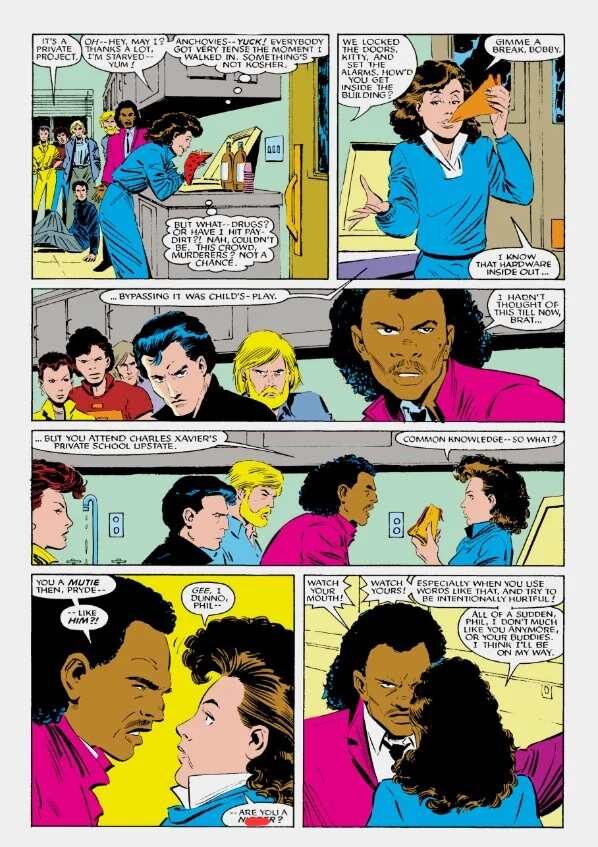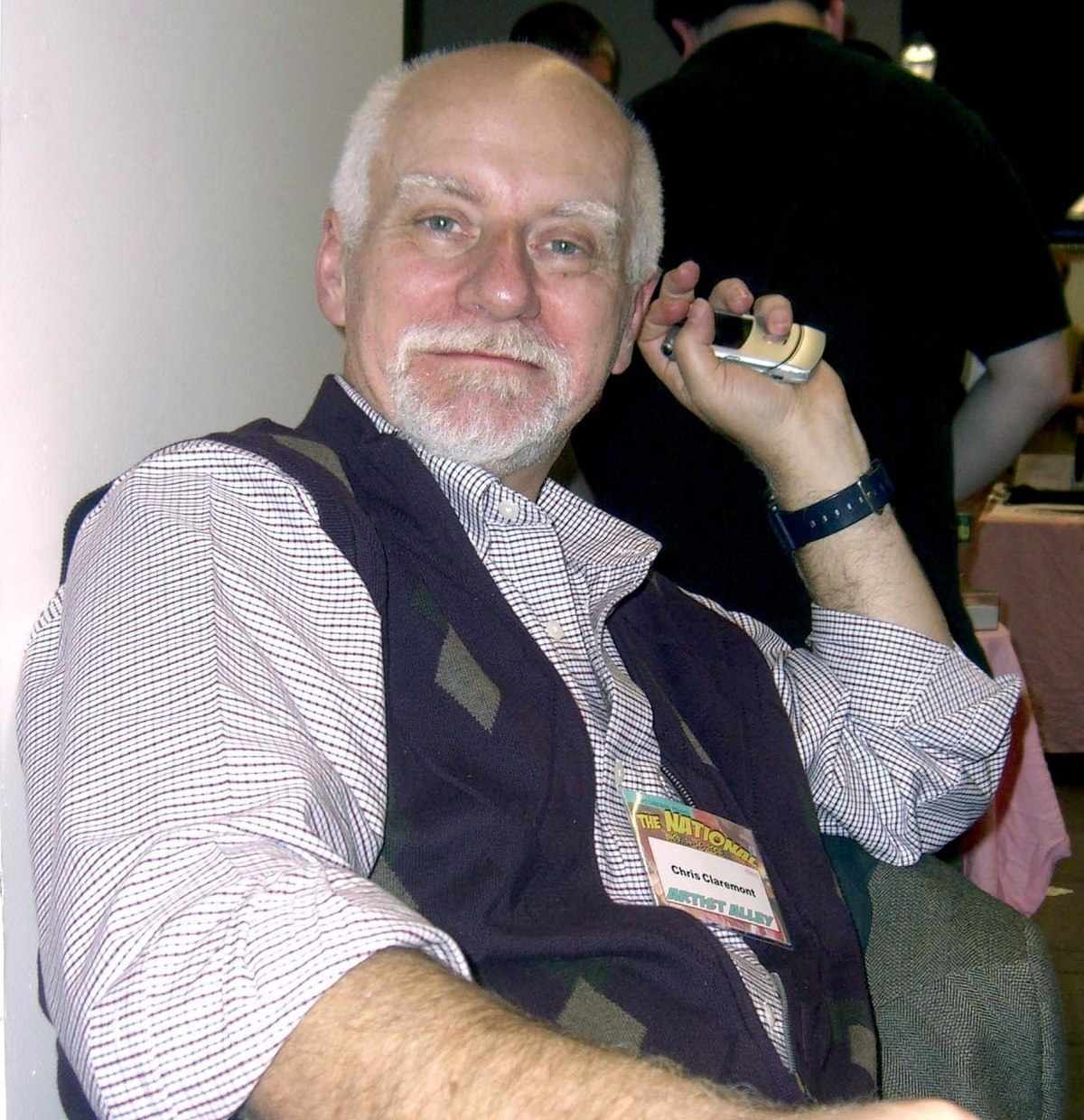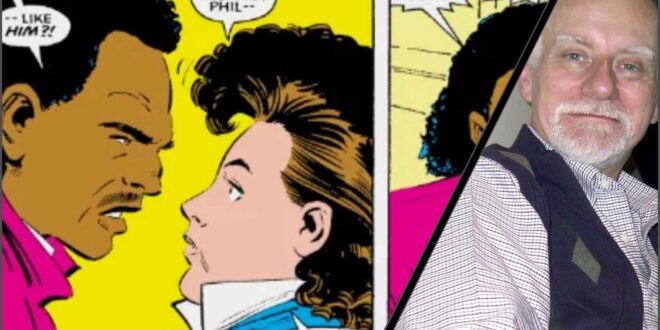The Uncanny Use of a Racial Slur in X-Men
Before you go any further, please understand In recent years, Chris Claremont has been pushing to change the name of the X-Men to X-People or X-Group. Some people believe that this is his way of trying to make amends for his past racist remarks.
A recent discussion online in the Facebook Retro Gaming Group brought to light a troubling exchange from Uncanny X-Men #196, published in 1985 by Marvel Comics. In the scene in question, Kitty Pryde, a teenage member of the X-Men, is accosted by a black student named Phil who refers to her as a “mutie”, a derogatory term for mutants in the Marvel universe. In response, Kitty shockingly throws back “are you a n****r?”
 The casual use of the n-word in this context is highly inappropriate and insensitive, even if the authorial intent was to show how hurtful anti-mutant slurs are by drawing a parallel to real-world racial epithets. By putting this ugly, loaded word in the mouth of a sympathetic character like Kitty, writer Chris Claremont risked trivializing the profound historical pain and trauma the n-word embodies for black people. It’s difficult to imagine a white writer today being so cavalier with such hurtful language.
The casual use of the n-word in this context is highly inappropriate and insensitive, even if the authorial intent was to show how hurtful anti-mutant slurs are by drawing a parallel to real-world racial epithets. By putting this ugly, loaded word in the mouth of a sympathetic character like Kitty, writer Chris Claremont risked trivializing the profound historical pain and trauma the n-word embodies for black people. It’s difficult to imagine a white writer today being so cavalier with such hurtful language.
There were certainly better ways Claremont could have made his point about the destructive power of bigoted speech without resorting to a real-world racial slur. Having Kitty compare being called “mutie” to being called the n-word inadvertently implies an equivalency between fictional anti-mutant prejudice and the realities of racism faced by actual marginalized groups. The impact of the epithet is blunted by applying it to a sci-fi scenario.

The offensive use of a racial slur in Uncanny X-Men #196 raises serious concerns about writer Chris Claremont’s sensitivity and judgment when it comes to handling issues of race and bigotry in his work. While this misstep occurred nearly 40 years ago, it nonetheless points to the need for Claremont to undergo thorough diversity and inclusion training if he is to continue writing the X-Men or other properties centered around marginalized groups.
While this comic is nearly 40 years old, it nevertheless provides a window into how far mainstream attitudes about offensive language and false equivalencies have evolved. In 2023, a scene like this would rightfully never make it to print. The comics industry still has a long way to go in terms of authentic representation and sensitivity, but a greater awareness has developed of the power words have to perpetuate harm and normalize prejudice.
There have been some group members sounding off with very valid arguments.
Chuffleufagus27 had this to say:
“Claremont should absolutely be removed from any upcoming X-Men projects. His use of the n-word was unacceptable, full stop. It doesn’t matter that it happened in 1985. Racist language causes real harm and there need to be consequences. Marvel needs to take a zero tolerance stance and show that this behavior won’t be swept under the rug.”
MarkusandMike chimed in:
“While I’m disgusted by Claremont’s actions, I don’t know if completely canceling him is the answer. He absolutely needs to face repercussions – sensitivity training, a public apology, donating to anti-racism causes. But he’s also done a lot to promote inclusion in the X-Men over the years. If he’s willing to take accountability and do the work to change, maybe there’s room for a path forward.”
Furpile46 responded:
“I’m torn. The X-Men stand against hate and prejudice. Claremont failed to live up to that here. But at the same time, the themes of his X-Men stories have meant a lot to marginalized folks. I want to see more PoC in charge of the X-books. But I don’t want racists to weaponize this controversy to push out an ally who made a terrible mistake. The focus should be on systemic change in comics.”
DankthunderDong also weighed in:
“Intentions matter, but impact matters more. Even if Claremont meant to condemn racism, he ended up perpetuating it. And this isn’t just any slur – it’s the n-word. That carries so much historical trauma for black people. If Claremont doesn’t understand that after decades in comics, I don’t know that he can be trusted to handle these powerful metaphors for oppression.”
This is not to argue that comics should never tackle uncomfortable topics or depict bigotry and hate speech. But it matters profoundly how these subjects are handled. The glib deployment of racial slurs and careless comparisons to real-world oppression have no place in responsible storytelling. One would hope that if Chris Claremont could revisit this comic today, he would find a less hurtful and more artful way to condemn intolerance. As an industry veteran who has created many iconic characters of color over the decades, perhaps Claremont would benefit from learning more about the impact that this particular choice of words had, however unintentional. There is always room for growth.
Marvel Comics would be well within reason to require Claremont to complete robust diversity training before allowing him to write the X-Men again. After all, these characters have long stood as powerful allegories for the struggles of oppressed peoples. The writers entrusted with their stories should demonstrate a nuanced understanding of real-world prejudice and a commitment to uplifting messages of equality. Just as the X-Men have had to train to perfect their powers, so too should Claremont train to hone his cultural competency.
A public apology would be a good start
A public apology would be an important first step in acknowledging the harm done and taking accountability. Claremont needs to demonstrate that he understands why his use of the n-word was so hurtful and unacceptable, even in a fictional context meant to condemn prejudice. He should apologize not just for the offense caused, but for his lack of judgment and sensitivity in deploying racist language.
This apology must not be a mere PR move to save face, but a sincere recognition of wrongdoing and commitment to change. Claremont should directly address the black community and pledge to do better. He should open himself up to listening to black voices about the impact of his actions. A truly meaningful apology could include a clear plan for how he intends to educate himself, make amends, and be a greater ally against racism going forward.
Some tangible steps Claremont could take to back up his apology: undergo extensive sensitivity training to address racial blind spots, donate to anti-racism causes, use his platform to amplify black creators, commit proceeds from his work to scholarships for aspiring black comics professionals. He needs to put in the work to match his words with actions.
Demanding a public apology is not about simply shaming Claremont, but rather pushing him to take responsibility as someone with influence in the comics community. If he wants to be entrusted with X-Men stories that serve as allegories for real world oppression, he needs to prove he takes that responsibility seriously. He can start by issuing a heartfelt, humble apology and committing to be part of the solution.
Fans who have looked up to Claremont have every right to expect better from him. A public apology is the bare minimum he owes to those he has hurt and let down, especially readers of color. By being held accountable, he has an opportunity to become an example of how to gracefully own up to mistakes and do the hard work of growth. Hopefully he rises to the occasion.
Thoughts X fans? Sound off below.
 Retro-Replay.com Retro gaming reviews, news, emulation, geek stuff and more!
Retro-Replay.com Retro gaming reviews, news, emulation, geek stuff and more!





This is g*y as fu*k.
I am sorry you feel that way!!
If this is satire you nailed it
yes, this is satire. Well, most of it. I still think he should be canceled just for trying to change the name of the x-men.
You can’t be this stupid? Can you?
1. Why are you the Ultimate arbitrator of what is and isn’t appropriate? We all have our own lines but that doesn’t mean you speak for the majority.
2. I can’t believe you’re calling for him to basically undergo some kind of mandatory brainwashing.
3. The whole point of this interaction is supposed to be uncomfortable. And I don’t believe whether it’s sci fi or not makes a difference as you claim. Guess what Schindler’s List isn’t a fucking barrel of laughs. Nor should it be. Not every X-Men story needs or should be an inoffensive chucklefest.
4. This happened over 40 years ago. Why are you arguing the it should be tried in modern day context. God forbid you read Huckleberry Finn or Tom Sawyer. You’d wet yourself.
Sir please calm down. The reeducation camp would be for his well being.
You’re a loser. You people have so little capacity for rational thought that your only answer upon encountering any idea that challenges your narrow worldview is to bury it, ruin the career and reputation of the person who produced it, to shame anybody who has the audacity to not be offended by it, and to bury your head in the sand when people tell you you’re wrong for divorcing it from its context in order to slander the person who made it. The fact that you “demand” an apology demonstrates that you people are nothing more than petty tyrants.
This is stupid as hell, Claremont owes no one an apology for a comic book story explaining how bigoted language is bad.
Intent matters, children.
Imagine Nathan Drake calling someone a “ni**er” because they called him a greaser or something.
Don’t get so hung up on words used in fiction you intellectual cripple. Worry more about your condescending unsolicited white knighting for black people based on a perfectly justifiable literary use of the word “nigger”.
Enhance your calm. I just want to make fun of the guy for trying to change the name of the X-men. I am hoping liberals everywhere rile up enough to cancel him after reading this.